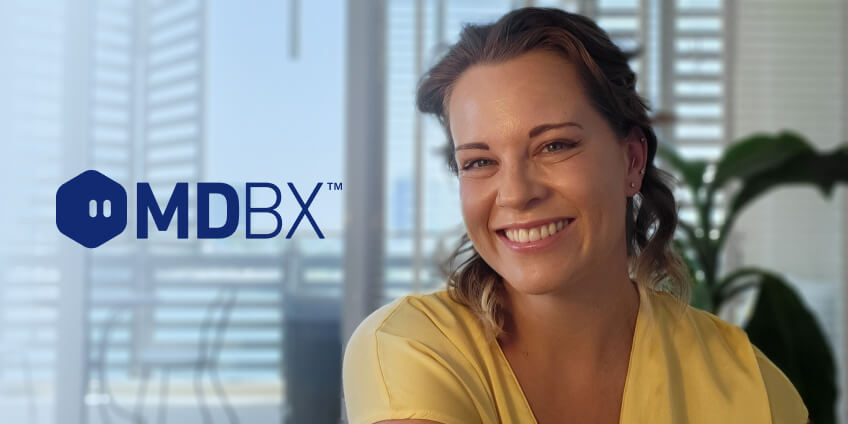We’re coming up to one year since we launched Ventures Lab – our Abu Dhabi-based Venture Builder, in partnership with Hub71, and while it’s safe to say that another year has flown by just like that, we are undoubtedly equipped with various lessons learned and value-add insights that we are keen to share and will be detailing later down the line.
However, as much as we are Venture Builders first, we are still a holistic Venture Platform that combines the operational, institutional, and financial capital needed to underpin the development of an entrepreneurship environment that builds and supports startups in MENA markets and other frontier economies. This includes a VC fund that sources, selects, and invests in impactful, mission-driven, and empowering startups.
We believe that investing and building absolutely can go hand-in-hand. Raising funds is imperative, but it does not mean a startup no longer needs sustained operational expertise once capital is deployed.
At the same time, receiving a suite of knowledge and guidance from seasoned specialists to aid in the growth and development of a company also doesn’t signify that investment isn’t required to take the next big leap.
We cover both ends of the spectrum, but are firm in our belief that building should always come first and will always be necessary along various touchpoints of the startup lifecycle.
With that being said and after building a pipeline of de-risked and developing startups, we recognized that now was the right time to expand our executive team.
We are thrilled to welcome our first female Partner to the Modus team. Yana El Dirani joins Modus after cementing herself as an investment professional, with over 15 years of experience in the sector, encompassing management consulting, public markets, and private investments.
She has a history of working in the financial services industry, with a track record of superior returns through smart asset allocation, rigorous due diligence, and industry/geographic diversification.
Prior to joining Modus, Yana was heading a Dubai-based Single-Family Office where she focused on early-stage investments that fit with the family’s strategy and risk appetite. She has also held positions with Credit Suisse and Delta Partners in her earlier career.
Now, we’re thrilled to have Yana onboard as a Partner and look forward to the impact she makes at Modus, in the wider ecosystem, and the value she equips our startups with. What makes her outlook particularly valuable is that she has witnessed both sides of the table – both investors looking to build their fund and startups looking to raise funds.
Yana shares with us her biggest lessons learned from her time at a family office and provides quick foolproof tips on how VCs can source the most impactful and high-performing startups and founders, while always remaining true to the real value they can supply.
——–
In my previous role as the Chief Investment Officer at a Single-Family Office, a very big part of our strategy revolved around venture capital funds as well as direct investments into startups at different stages of their lifecycle.
When VC funds approached us for investment, the same questions used to linger in mind “why would I choose you? How are you different from everyone else in the market?”.
And the truth is, they weren’t…. The region’s ecosystem is still developing and hence all funds compete over similar investments in repetitive industries with increasingly inflated valuations.
What made our strategy at the time move away from funds and closer to direct investments was a desire to be able to add value to those startups and not just provide them with capital, of which there is abundance in the region.
At Modus, we believe that founders are in need of value-add services on top of capital and that is why we support them from the perspectives of marketing, tech, and operations through our venture builder programs. This minimizes the risk of failure and serves to support all stakeholders involved in the VC space, from founders to LPs. We are venture builders and operators first, venture capitalists second.
Everyone has their own set of rules or principles that they live by when it comes to startup due diligence and investment decision-making. I, of course, after my time at the family office and now as Partner at Modus, have such principles myself.
I will not fixate on the “study the competition” or “ensure reasonable valuation” considerations, but I would like to touch upon a few points that I believe are not only applicable to the VC ecosystem, but can also tip over into life and building meaningful relationships across the board.
5 tips for VCs to successfully source startups and access innovation
1. Focus on people and their visions, not only on product/s
In a game of football, any player, no matter how great he is, needs a support system and strategy to win the game. This same theory lies in the case of startups. The founder’s vision is extremely important – how do they see the world evolving? How will their product serve the purpose? Equally important is the founder’s ability to surround themself with an exceptional team who will be motivated enough to make the vision a reality. A product can always pivot, but team and vision stay constant.
2. Always listen first, talk second
As a venture capitalist, it might be very attractive to jump at the opportunity, prove your worth, and try to teach the founder how to best do their job. It is indeed important to try and direct the founder with an outsider’s opinion who has seen it all and has a macro point of view, but it is equally, if not more important, to listen to the founder first.
While adding long-term value as a result of your own expertise is crucial, only they can explain their vision of the company and why they’re doing what they’re doing. Like with everything in life, you must listen first to understand the complete picture and act second.
3. Ask “stupid” questions and disagree
Stupid questions can be, ironically, very smart and provide much-needed answers. Do not allow ego to stop you from asking them. Through questions, different paths can be revealed that you may not have noticed at the very start. Asking any question, doesn’t necessarily mean that you have the answer; it means that it will make both parties of the conversation aware of the possibilities and might even shed light on avenues previously disregarded.
Voice out your disagreement – having two opposing points of view is what surprisingly leads to understanding and solutions in the future.
4. Be aware of your biases
No one is unbiased in this life. Once we are biased towards an idea, we find ways to defend it at all costs and stop hearing the voice of reason even if we are wrong. When meeting with a startup, you should be fully aware of what your biases are and keep an open mind. Be open to the possibility that another point of view has reason for existence. With that, you will be so much more receptive to innovation and have a higher probability of picking winners.
5. Put your back into it
I am not referring to studying the market, understanding the competition, and reviewing the financial model. There is a reason why venture capital funds have terms of at least 8 years. It takes a long time to build the network, for companies to mature, for exits to happen, and for the perseverance to pay off.
It simply takes a long time to succeed. You have to have the patience, dedication, persistence, stamina, and a long-term mindset to make it work.
Build relationships with LPs, entrepreneurs, and other VCs. Understand how you’re different from other VCs and continue on your value-add path. Be intentional and aware of why you are choosing the founders you are choosing and how you can support them.
Be honest and transparent with your LPs. Only with all of this in mind will you succeed as a VC with so many more, somewhat like you, around you.
Following on from the idea of building meaningful long-term relationships, the lesson is ultimately that the VC world is less about pinpointing the great investment opportunities, and more about actually having access and then adding exceptional value to them.
To survive in the future, you want to ensure that LPs, entrepreneurs, and other VCs want to work with you now and in the future. With an honest, transparent, long-term, and differentiated approach, it is absolutely achievable.
We’re building new and exciting companies and are always looking for talented innovators to join the team.



